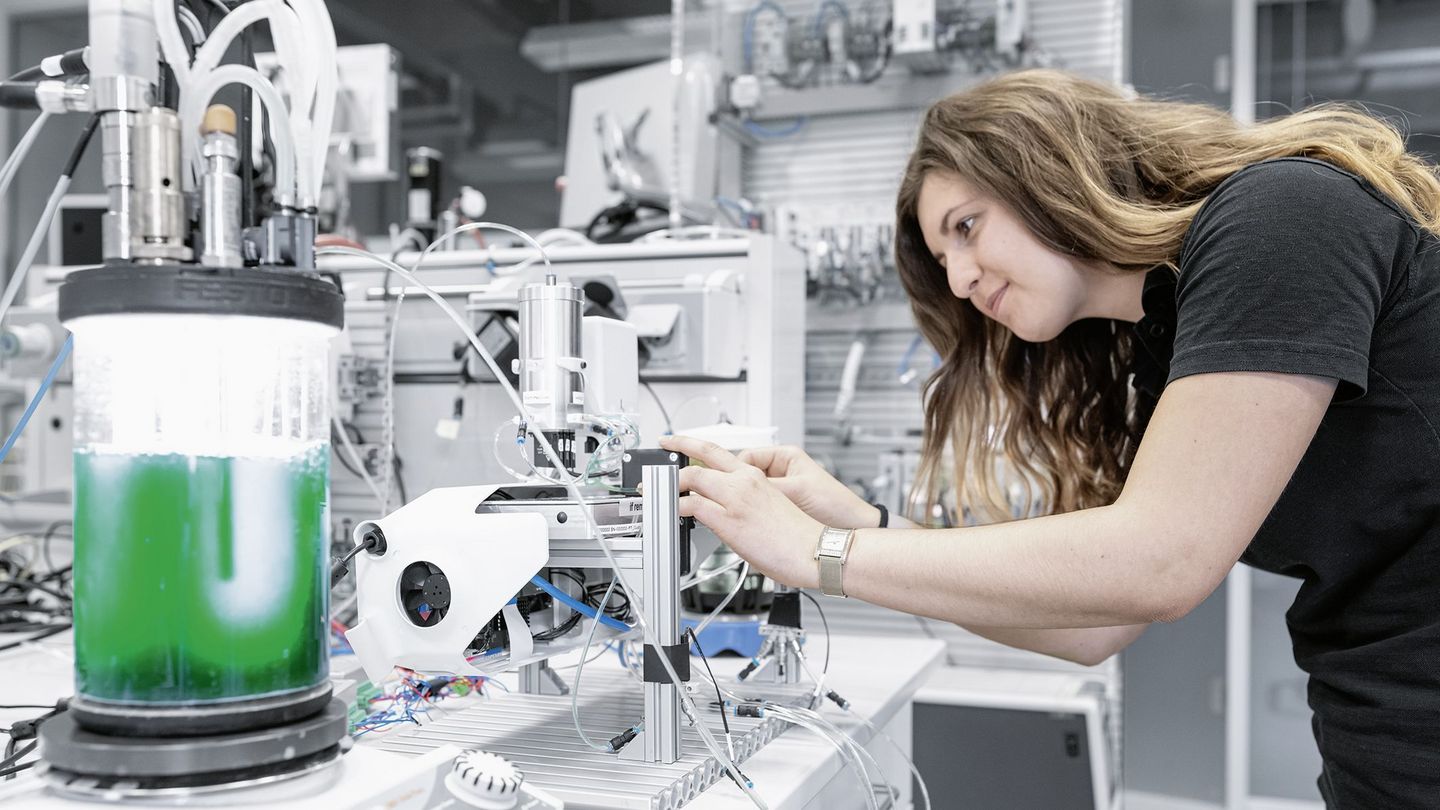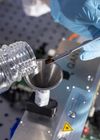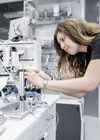Sensor measurements harness quantum effects to facilitate novel applications in the chemical, semiconductor and mechanical engineering sectors // Quantum technology can be used to simultaneously measure the size, shape and velocity of microparticles
Hannover Messe: Q.ANT gears up for live demonstration of world’s first industrial quantum sensors
Stuttgart/Hannover, May 27, 2022 – Visitors to Hannover Messe will be treated to live demonstrations of the world’s first industrial-grade quantum sensors by Stuttgart-based start-up Q.ANT, a wholly owned subsidiary of high-tech company TRUMPF. The company will be showcasing particle sensors that are able to measure particles in gases, liquids and powders in ways that cannot be accomplished using current measuring technology. At the technological heart of these sensors are quantum effects in excited light. Generated in targeted ways, these effects can be harnessed to analyze the size, shape and velocity of microparticles in one and the same measurement. In turn, these measurements make it possible to acquire information that will facilitate new applications in the semiconductor, chemical and mechanical engineering industries. A number of companies from these sectors are already putting Q.ANT quantum sensors to the test. At Hannover Messe, Q.ANT will enable visitors to experience two industrial quantum-sensor applications in action for the very first time:
Measuring coffee powder for a food company (Hall 2, Booth A22)
In collaboration with sensor specialist SICK, Q.ANT will be showcasing a quantum sensor that food manufacturers can use to check the quality of coffee. The sensor measures the size and shape of the grain, which is a key factor in determining how each particular coffee will taste. In order to achieve the desired level of quality, the quantum sensor allows coffee producers to continuously monitor the grains during the industrial grinding process. Working together with a major food manufacturer, it has already been possible to make powder measurements. SICK now intends to distribute the sensor worldwide, paving the way for other future applications in the food sector, particularly in the powder processing industry.
Measuring biomass in Festo’s algae reactor (Hall 6)
The control and automation specialist Festo will also be showcasing an application that uses the Q.ANT quantum sensor at Hannover Messe. Festo uses the sensor to obtain precise, real-time information about the growth of organisms inside the reactor. To provide this information, algae are conveyed to the sensor automatically and continuously through special microfluidic components made by Festo, such as pumps that can handle extremely small quantities of liquids with outstanding precision. The quantum sensor is able to optically analyze individual cells in order to precisely determine the amount of biomass. It also checks the cells’ vitality with the help of artificial intelligence. The quantum sensor makes it possible to respond proactively to process events and take steps to regulate them in order to promote faster algae growth.
Algae have an extremely high photosynthetic efficiency in their natural environment, binding ten times more carbon dioxide (CO2) than land plants. When algae are grown in bioreactors equipped with appropriate sensors, control technology and automation, this efficiency can be increased even further, reaching a hundredfold that of land plants. The substances created in this process can be used as raw materials for pharmaceuticals, packaging and cosmetics and, ultimately, recycled in ways that create a climate-neutral system.
Q.ANT: a leader in the field of quantum computer chips
Q.ANT is one of Germany’s leading companies in the field of quantum-technology-based industrial products. Only a few months have passed since the Stuttgart-based start-up presented its novel photonic chip process. Within the space of the next few years, this new process will allow today’s established electronic mainframe computers to be equipped with cutting-edge quantum-technology processors.
In March 2022, Q.ANT took the helm of a consortium that has the task of building a demonstration and test system for photonic quantum-computer chips. The consortium has an initial budget of 50 million euros, some 42 million euros of which will come from the German Federal Ministry of Education and Research (BMBF).
Digital photographs in print-ready resolution are available to illustrate this press release. They may only be used for editorial purposes. Use is free of charge when credit is given as “Photo: TRUMPF”. Graphic editing – except for cropping the main subject – is prohibited. Additional photos can be accessed at the TRUMPF Media Pool.
担当者











